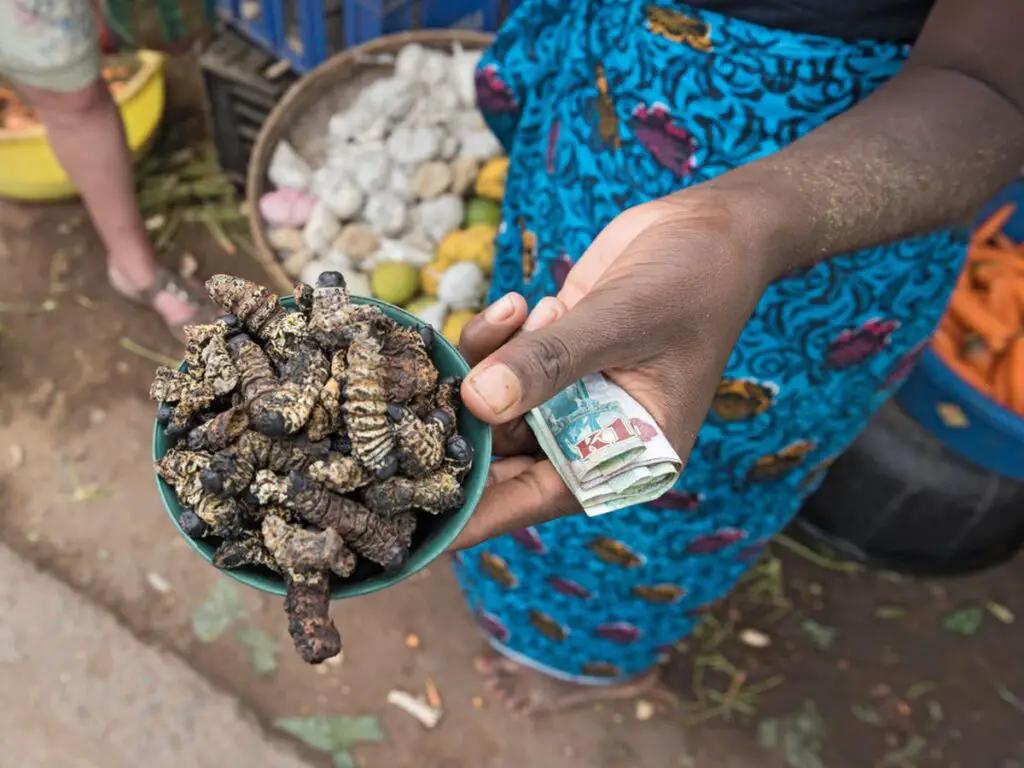- World Bank reports that insect farming could provide over 14 per cent of the crude protein needed to rear all the pigs, fish, poultry and goats in Africa
- Dorte Verner, a Lead Economist at World Bank, says that it is possible to feed all people in the world with nutrient-rich insects and decrease the environmental impact of food and agriculture
- The population of Africa could hit 2.53 billion people by 2050, and the demand for food and protein would increase significantly, which the current linear food system might not satisfy
Most people see insects as ugly, dirty and irritating creatures that are only good at transferring germs. However, according to the World Bank, insects farming could answer Africa’s poverty, hunger and ecological crisis.
Despite their dirty nature, insects have a pack of great nutritional value, and the world could use them to tackle malnourishment in the continent, especially in children.
According to SOS Children’s Villages, 3.2 million children under five die every year because of hunger and drought in Africa. In other words, more than half the children who die of hunger-related causes come from the continent.
Read: Crocodile farming in Africa: An untapped SME niche
Africa consumes roughly 25 per cent of the 2,100 different species recognized as edible globally.
Cockroach farming in Africa
Cockroach farming is a trend that is gradually increasing in Africa. Daniel Rwehura has been breeding the six-legged creature for years and sells a kilo at approximately six dollars. He says that cockroach farming comes very cheap and can be anywhere.
World Bank reports that insect farming could provide over 14 per cent of the crude protein needed to rear all the pigs, fish, poultry and goats in Africa.
Wastes from insects can also create fertilizers. Frass is one of the by-products of insect breeding characterized by chemical and agronomic properties, which make it an excellent biofertilizer without requiring pre–post-treatments
Barclays Investment Bank estimates s that the market for insects as food and animal feed will be worth up to US$8 billion by 2030, a CAGR of 24% over the decade.
There is a high rise of urbanization in most African cities, which could demand insect farming living in urban areas due to insufficient space to carry out other types of farming.
Insect farming can provide food security in Africa
Existing food systems are becoming continuously unsustainable due to scarcity of arable land and water and high ecological effects. Insect farming for food and animal feed with circular economy potential has gained tremendous interest.
The population of Africa could roof to 2.53 billion people by 2050, and the demand for food and protein would increase significantly, which the current linear food system might not satisfy.
Dorte Verner, a Lead Economist at World Bank, says that it is possible to feed all people with nutrient-rich insects and decrease the environmental impact of food and agriculture. Since 2014, food production per capita has been decreasing.
Insects are delicious and nutritious. They provide nine digestible amino acids, zinc, iron and calcium, all the macronutrients that children in Africa lack.
Some everyday food products fortified with insect meal include crackers, buns, cupcakes, samosas, chapatis, biscuits, bread, cookies, cereal-based porridge, among others, to enhance their nutrition and increase consumer acceptability.
Read: Is Kenya planning to kill smallholder farming?
Research by ELSEVIER reported that over 75% of the farmers and feed millers had expressed willingness to adopt these technologies.
Preliminary research hindering insect farming in East Africa
In East Africa, there is potential for farming several edible insects, including house cricket (Acheta domesticus), Desert locusts (Schistocerca gregaria), yellow-eyed crickets (Scapsipedus icipe), Black soldier fly (Hermertia illucens), African Field crickets (Gryllus bimaculatus), Nsenene (Ruspolia differens), African palm weevil (Rhynchophorus phoenicis) and mealworms (Teneberio molitor), among many others.
Large scale insect farming ventures in East Africa can be achieved through:
- Adequate training of farmers to equip them with the necessary skills for the fast-growing industry
- Creation of insect producer groups to bring insect farmers together
- Providing access to financial services
- Enhancing awareness and demand among consumers, especially the vibrant younger generations
- Raising awareness among the public and policymakers on social, economic, and environmental benefits of insect farming enterprise and its impacts on a circular economy.
- Harmonization of regulatory frameworks to support insect farming.
- Develop a digital information exchange platform to enhance youth and partners’ access to tailored technical and market information and experience through public-private partnerships.
Although there are numerous hurdles to overcome-regulation, price, and cultural acceptance- insects are a viable middle-ground for consumers wanting to make their diets more sustainable without entirely depending on plants. Insect farming would also offer a more sustainable source of animal feed.
Read: Tying loose ends: Tanzania sisal farming recovery programme
